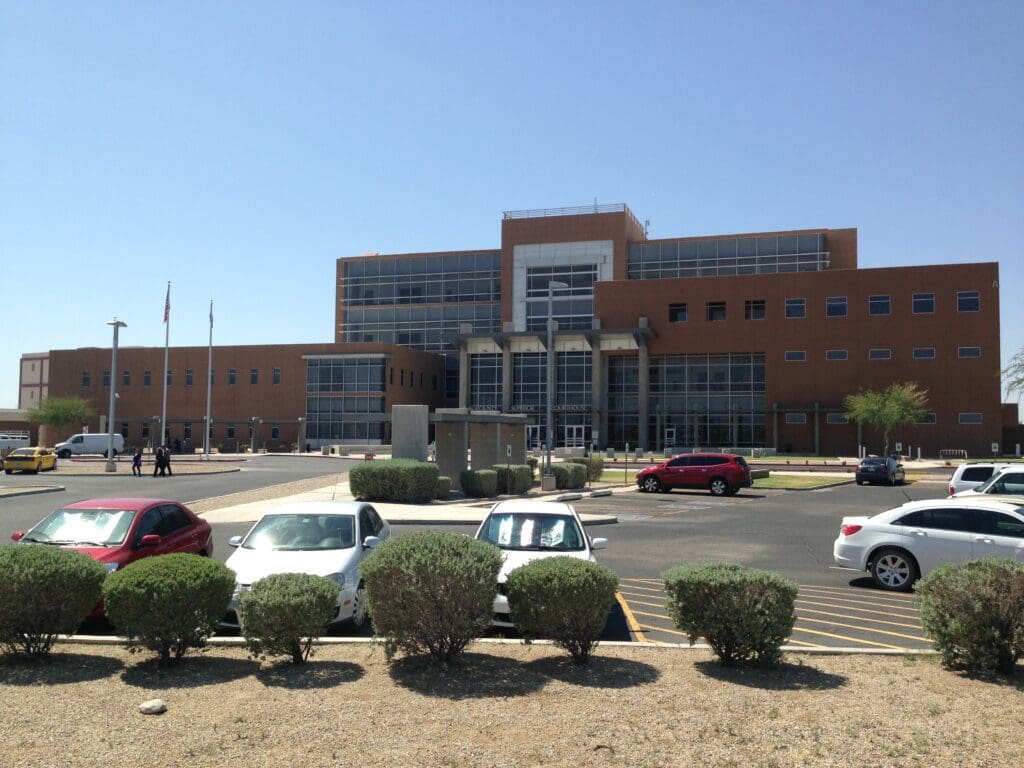Approximately 30 to 45 days after your bankruptcy case is filed, you must attend a 341 hearing in the bankruptcy court house, there are several reasons for the 341 hearing.
The first reason for the meeting is because it is required by the bankruptcy code. All bankruptcy filers are to be questioned under oath with regard to the information contained in their schedules to be eligible to receive a discharge. Because the requirement is found in section 341 of the bankruptcy code, is has has earned the nickname “341 Hearing”. (Pronounced “three-forty one”).
Second Reason for 341 Hearings
Second reason for the 341 meeting of the creditors is to provide creditors an opportunity to ask questions of you with regard to the information listed in your petition and schedules. Bankruptcy is open to the public and so anyone who wants can attend your 341 hearing. However, in most cases, only you, your attorney, and the Chapter 7 bankruptcy trustee will actually participate in the hearing.
Identification Verification
Your trustee must see your driver’s license and social security card to verify that you are who you say you are. So bring your government issued photo I.D. as well as your social security card. Your Chapter 7 bankruptcy trustee will compare the information on your identification with the information submitted on your bankruptcy petition. The purpose of this requirement is to help curtail identity theft and bankruptcy fraud. In the past criminals had taken a fake social security number, incurred debt associated with that number and then filed for bankruptcy using that number.
Lastly, the trustee must see your driver’s license and social security card to verify that you are who you say you are. You must bring your government issued photo I.D. (driver’s license) as well as your social security card. You cannot bring a photocopy of the social security card; you must bring the actual card.
Debtor Questioning
The hearing gives the trustee and creditors an opportunity to ask questions of you with regard to the information listed in your petition and schedules. Bankruptcy is open to the public and so anyone who wants can attend your 341 hearing. However, in most cases, only you, your attorney, and the Chapter 7 bankruptcy trustee will actually participate in the hearing.
Your trustee will ask you additional questions with regard to your assets, liabilities, income, expenses and statement of financial affairs. Typical questions are:
- “Do you accept the oath I just administered to you?”
- “Did you read, review and sign the Petition, Schedules, and Statement of Financial Affairs filed in your case?”
- “Are there any amendments or changes that need to be made to your paperwork?”
- “Have you filed another Bankruptcy in the previous 8 years?”
- “Have you ever filed Bankruptcy using a different name or Soc. Sec. number?”
- “Have you lived in Arizona for more than 2 years?”
- “Have you paid back money to any family member or friend in the last year”
- “Does anyone owe you money?”
- “Could you potentially sue someone for money?”
- “Did you list all of your assets?”
- “Did you list all of your debts?”
- “Do you owe anyone Spousal Maintenance (Alimony) or child support?”
- “Did you read, sign, and return the letter you received from the Trustee?”
Why Would a Creditor Appear at a 341 Hearing?
Let me start off by saying that creditors appear in less than .01% of the 341 hearings. Once the trustee is through questioning you, he or she will ask if there are any creditors present who would like to question the debtor(s). If there are any creditors present they will come and sit at a specially designated table. Once they have introduced themselves and who they represent they will begin their questioning. Usually the creditor will ask you specific questions about the paperwork that was filed in your case. For instance, they might ask how you came to the value of a particular asset or why an asset they believe you still own was not listed. This is one more reason why you want an experienced bankruptcy in your corner when going through the bankruptcy process.
Creditors usually appear in anticipation of filing an Adversary Proceeding. An adversary proceeding is a form of lawsuit that transpires within a bankruptcy. Creditors typically file an adversary proceeding when they want to convince the bankruptcy court that the debt you owe should still be paid even though you’ve filed bankruptcy. So if a creditor appears at your 341 hearing there is a good chance that they will file an Adversary Proceeding.
Why Do Creditors Rarely Appear?
It’s very expensive for a creditor to hire a bankruptcy attorney to represent their interests in your bankruptcy. Often the attorneys that represent creditors charge $400 – $500 an hour. Because it is so expensive for the creditors to hire an attorney they rarely do so unless the argument is over a lot of money and they feel they have a good chance of winning an Adversary Proceeding. The whole purpose of bankruptcy is to give debtors a fresh start and so courts are not inclined to require repayment of a debt by a bankruptcy filer except in extraordinary cases.
Secondly, your creditors must have a legal argument for why you should have to repay them. For instance, American Express can’t argue—“this person owes us money and we want it back”—that’s not a legal argument. Typically, creditors don’t have a legal reason for why you should repay them and therefore they don’t show to your 341 hearing.

If you need help from an Arizona bankruptcy attorney then contact the Dunaway Law Group by phone 480-389-6529 message us HERE.
